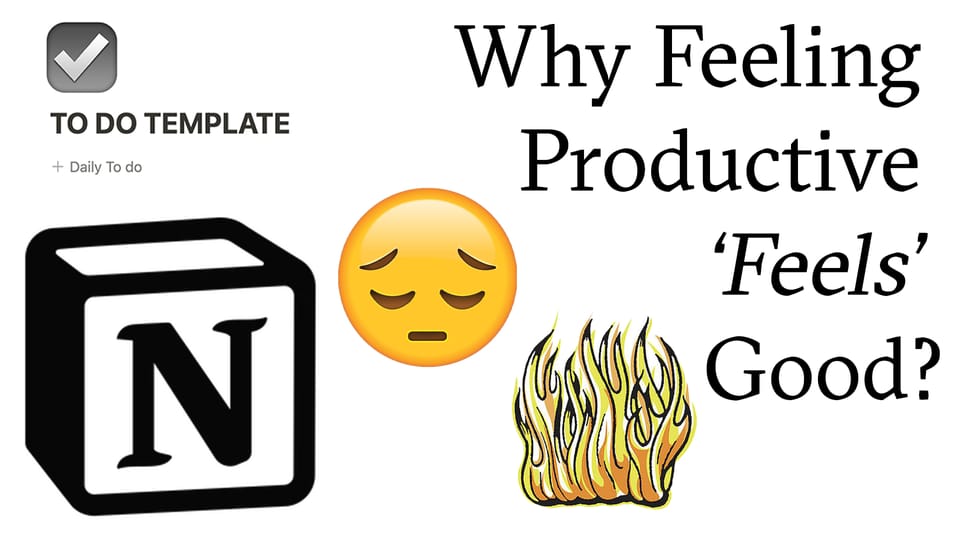Pseudo-Productivity: The Dangerous High of Feeling Busy

With popular apps like Notion, people have endless tools to organize and structure their day.
While organization is valuable, the habit of perfecting plans is often mistaken for real progress.
What Is Pseudo-Productivity?
Pseudo-productivity is the trap of feeling productive without actually moving closer to your goals.
It’s when you spend more time organizing, scheduling, and color-coding instead of doing the real work.
Since the mind is wired to avoid hard tasks, humans are prone to do the easiest tasks first.
And when you combine this mental wiring with modern tools that reward organization over execution, it becomes even easier to mistake busyness for true progress.
Why It Feels So Good?
- Control feels comforting.
When life feels chaotic, structure gives you a sense of mastery — even if nothing substantial happens. - Quick wins release dopamine.
Checking off small, easy tasks creates a false sense of accomplishment, reinforcing the behavior. - Preparation feels safer than action.
Real work often means uncertainty, mistakes, criticism, and failure. Organizing feels clean and controlled.
Real Productivity vs. Pseudo-Productivity
Humans can feel the mental shift that comes with true productivity.
Real focus often brings noticeable strain, especially when locking in on a single task.
We wrestle with the uncertainty of completion, inevitable mistakes, and the risk of failure.
It's the unfinished drafts, the awkward introspection, and the rough ideas that demand real time and attention.
Pseudo-productivity offers a sense of control, delivering small doses of accomplishment that trigger dopamine.
Over time, this dopamine reinforces the habit, making it easier to choose busywork over real progress.
How To Break The Cycle?
Ask yourself:
- Am I doing this to move forward or just to feel in control?
- Am I chasing a dopamine hit or meaningful progress?
Recognizing the difference is the first step.
Embracing discomfort & rejecting dopamine is the next.
About: Human UX is a knowledge resource dedicated to understanding human behavior in the digital age. Our goal is to make complex psychological, social, and cultural concepts accessible, giving people the tools to think critically, discuss openly, and apply agency.